Poetry is truth, feelings, or experiences expressed through imagery and symbolic language and is found throughout the Old and New Testament, including in a collection of 150 inspired Psalms.
How is it unique?
Poetry (Psalms) are unique because rather than being God’s spoken word to people, they show inspired people speaking to God (or about God) in song, poem, and prayer.
What was its purpose?
Poetry is intended to appeal to emotions, to evoke feelings, and stimulate a response – it addresses the mind through the heart. It has a rhythm and structure that helped people remember God’s Word at a time when written copies, reading, and writing were rare. The psalms specificially were used as a prayer book for personal use and for worship when gathered together. People could turn to different types of psalms in different seasons: Lament (e.g. 3, 51), Songs of Praise (e.g. 46, 100), Thanksgiving (e.g. 34, 40, 118), Royal (e.g. 2, 110), Trust (e.g. 23, 63, 121) and Wisdom (e.g. 1, 119, 139).
Why should I read it today?
Poetry (Psalms) invites us to express ourselves and relate to God in a real and authentic way and they can serve as a guide to purposeful worship and intimate prayer.
How do I get the most out of it?
-
What was the purpose for it being included in the Bible?
-
What is the intended meaning of the symbolic language used (e.g. hyperbole, imagery, metaphor)?
-
What type of psalm is it (e.g. lament, praise, thanksgiving, royal, wisdom, or trust) and how was it used back then?
-
How did the poet/psalmist relate to and affirm God? What do we learn about God in the poetry?
Interested in learning more about Poetry? Check out episode 105 of The Chara Project Podcast on How to Study Poetry, available on YouTube and most podcasting sites.
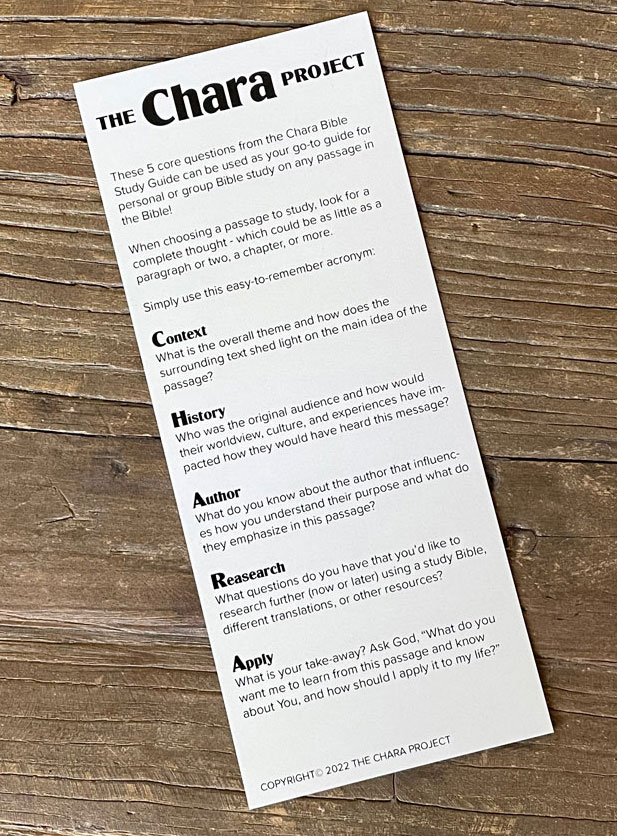


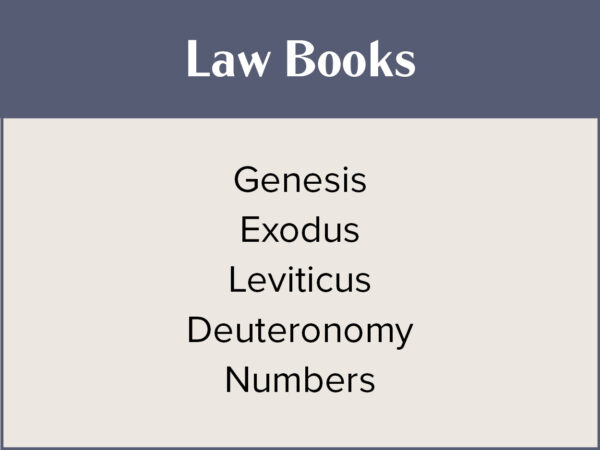 In the first five books of the Old Testament, God gave laws or instruction to the Israelite people on how to live with Him and with each other. Although often referred to as “The Law,” these books are largely narrative illustrating that God’s law is relational in nature and cannot be interpreted outside of God’s story.
In the first five books of the Old Testament, God gave laws or instruction to the Israelite people on how to live with Him and with each other. Although often referred to as “The Law,” these books are largely narrative illustrating that God’s law is relational in nature and cannot be interpreted outside of God’s story.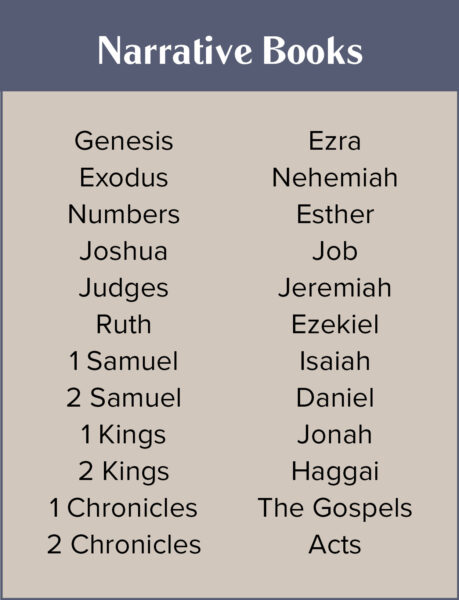 Over 40% of the Bible is considered narrative, which are stories of God’s people in the past. The Bible tells thousands of small stories that each contribute to one Big Story of creation, fall, redemption and restoration.
Over 40% of the Bible is considered narrative, which are stories of God’s people in the past. The Bible tells thousands of small stories that each contribute to one Big Story of creation, fall, redemption and restoration.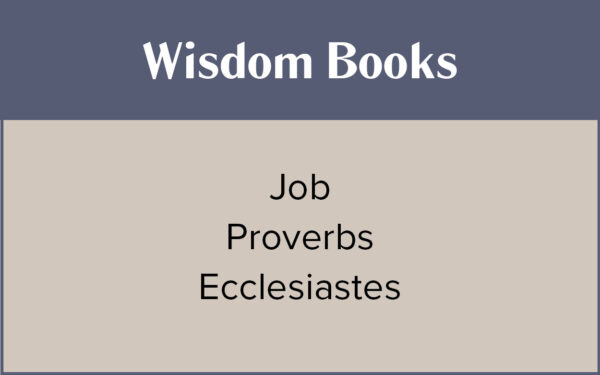 Wisdom literature is discernment and applicable truths given from God to man that can help guide our lives today. In most cases, these truths are captured in Job, Proverbs, and Ecclesiastes.
Wisdom literature is discernment and applicable truths given from God to man that can help guide our lives today. In most cases, these truths are captured in Job, Proverbs, and Ecclesiastes.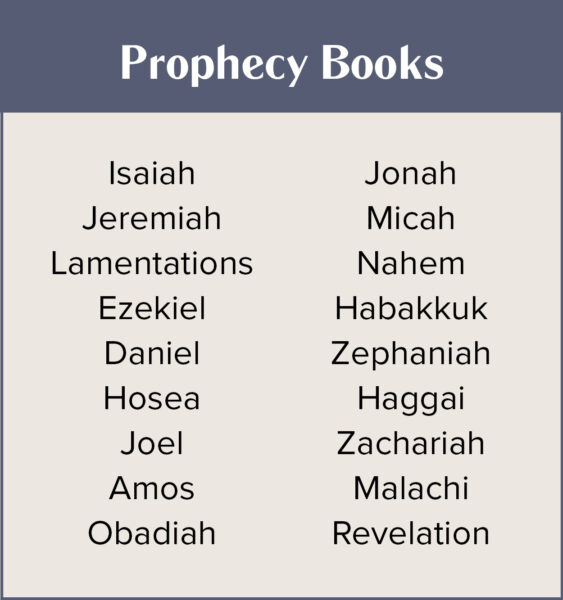 God used hand-selected prophets to communicate messages from Him. There were hundreds of prophets throughout Jewish history, 16 of whom would have their own named books in the Old Testament (Isaiah through Malachi).
God used hand-selected prophets to communicate messages from Him. There were hundreds of prophets throughout Jewish history, 16 of whom would have their own named books in the Old Testament (Isaiah through Malachi).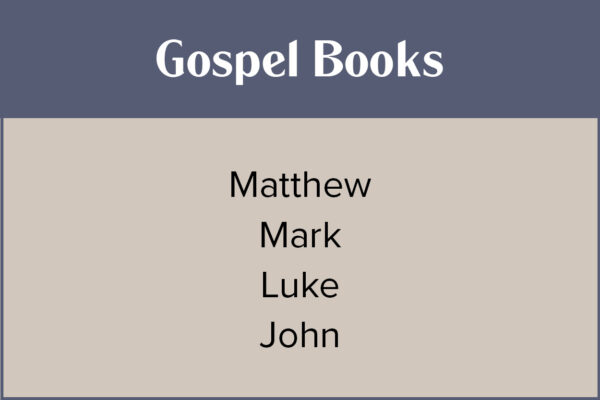 Matthew, Mark, Luke and John wrote the “good news” about Jesus and the Kingdom of God, which is collectively known today as the Gospels and make up the first four books of the New Testament.
Matthew, Mark, Luke and John wrote the “good news” about Jesus and the Kingdom of God, which is collectively known today as the Gospels and make up the first four books of the New Testament.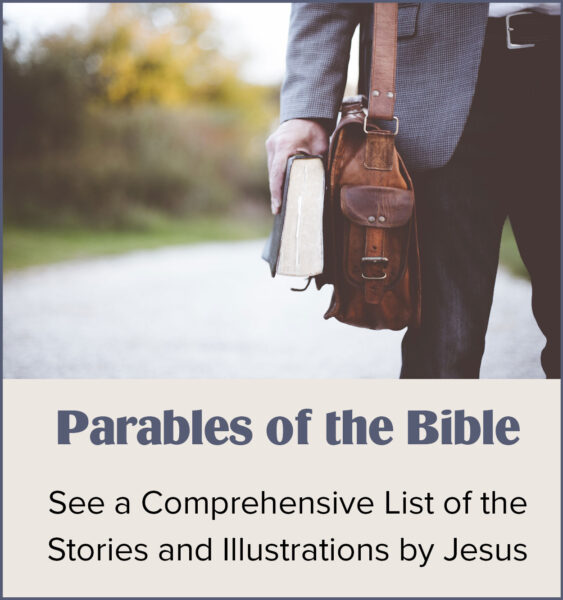
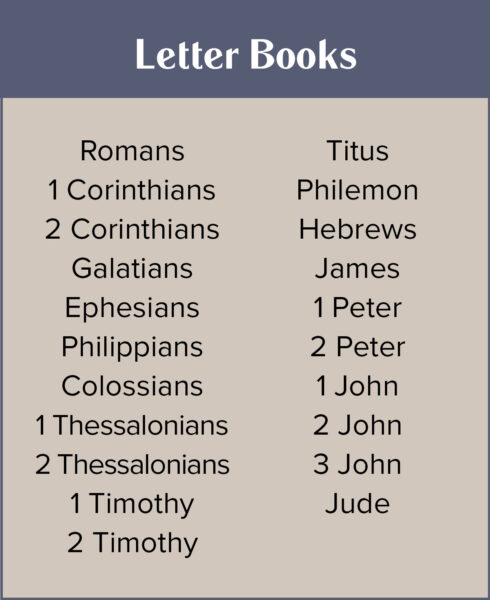 Twenty-one of the twenty-seven books in the New Testament are letters (also called epistles) from the apostles to the early christians and churches in the first century.
Twenty-one of the twenty-seven books in the New Testament are letters (also called epistles) from the apostles to the early christians and churches in the first century.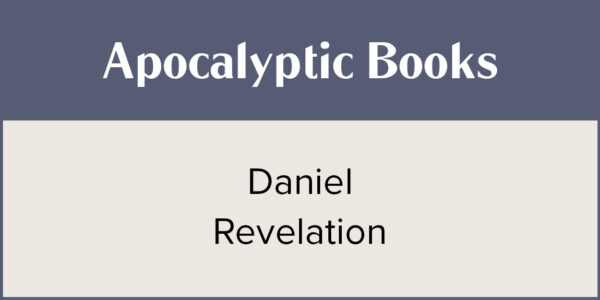 Often called “revelation,” this literary style is prophetic writing that is captured in both the books of Revelation and Daniel.
Often called “revelation,” this literary style is prophetic writing that is captured in both the books of Revelation and Daniel.